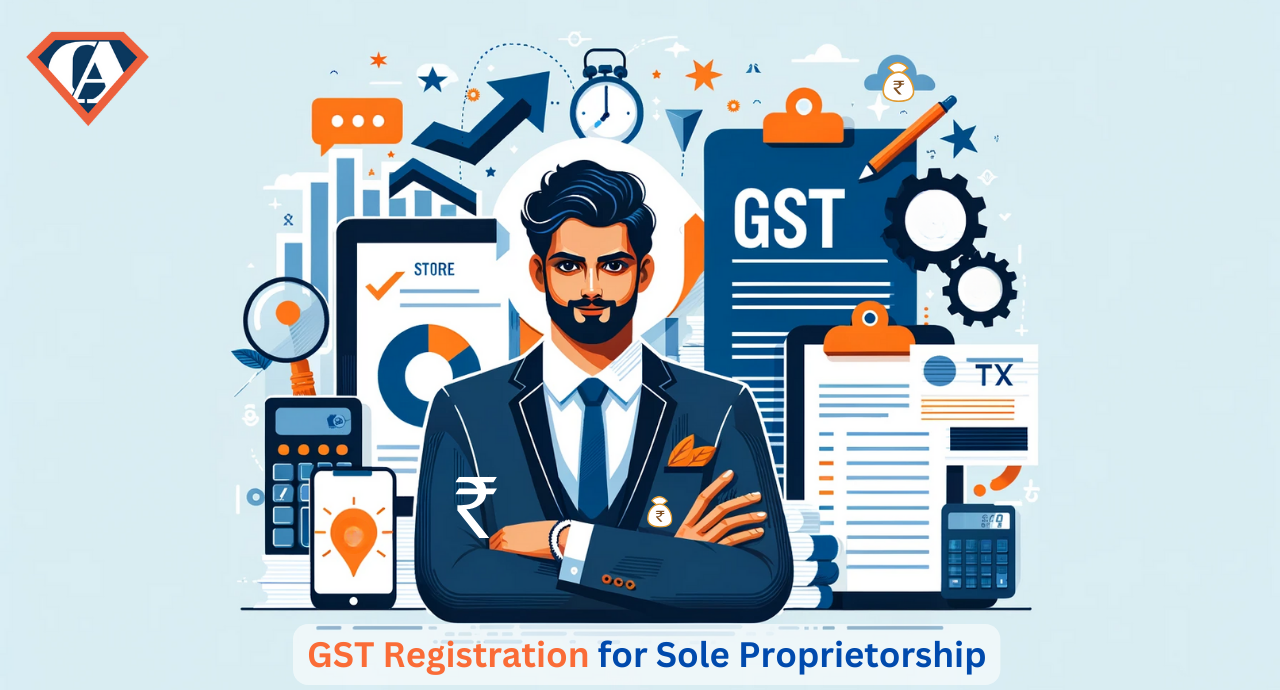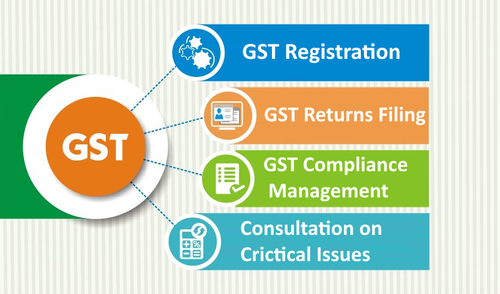Crucial Guide to Singapore GST Registration for New Businesses
Crucial Guide to Singapore GST Registration for New Businesses
Blog Article
Browsing the Complexities of GST Enrollment: Professional Tips and Best Practices for Smoother Conformity
From analyzing enrollment needs to using technical tools for structured processes, the trip in the direction of smoother GST conformity is diverse and nuanced. Stay tuned to reveal necessary techniques and insights that can help businesses guide through the intricacies of GST registration with finesse and self-confidence.
Understanding GST Registration Requirements

In enhancement to turnover thresholds, services engaging in interstate sales or giving taxed solutions may also be called for to register for GST, even if their turnover is below the recommended limitation (Singapore GST Registration). Recognizing these requirements and thresholds is necessary to stay clear of charges and make sure smooth operations within the legal structure
In addition, services have to collect and prepare the needed documentation, such as proof of identity, address, service incorporation, and checking account details, before initiating the GST enrollment procedure. Stopping working to provide accurate details or meet the registration target dates can cause fines or other legal consequences. Businesses need to remain informed regarding the specific GST registration needs applicable to their procedures to preserve conformity and prevent prospective concerns.
Organizing Important Documents
Businesses beginning on the GST enrollment process should diligently put together and organize the vital documents required for entry. The key files typically needed for GST enrollment consist of proof of service registration or identity, address and unification proofs of the business proprietors or companions, savings account details, proof of major area of business, and authorization types. Making certain that these documents are conveniently available and arranged can improve the enrollment procedure and protect against hold-ups or beings rejected.
To effectively organize vital documents, businesses need to develop a centralized system for keeping and classifying the needed paperwork (Singapore GST Registration). Utilizing digital storage solutions can assist keep easy accessibility and make certain that files are firmly stored. In addition, establishing a list of all needed papers can work as a useful tool to track what has actually been collected and what is still needed for entry

Leveraging Innovation for Effectiveness
Enhancing functional effectiveness via technical assimilation is critical for modern companies navigating the intricacies of GST enrollment. Leveraging technology can streamline procedures, lower mistakes, and ensure timely conformity with GST laws. Among the essential methods innovation can aid in GST registration is via making use of automated software application remedies. These tools can help businesses track sales, produce billings, calculate tax obligations, and send returns accurately. By automating these jobs, businesses can conserve and decrease manual mistakes time that would certainly or else be invested in recurring management work.
Furthermore, technology can help with seamless interaction with tax obligation authorities. On-line websites and interaction tools make it possible for organizations to submit papers, settle inquiries, and receive updates in an extra effective fashion. This not just quickens the enrollment process but likewise assists in keeping trusted and transparent interaction with the relevant authorities.
In addition, cloud-based storage services supply a safe and secure system for services to store and access their financial data, making certain conformity with GST record-keeping requirements. By centralizing data storage and automating processes, services can boost their general efficiency and precision in GST registration treatments.
Proactive Compliance Surveillance

To ensure effective proactive conformity monitoring, businesses need to establish durable inner controls, conduct periodic audits, and leverage automation tools for real-time monitoring of GST deals. Routine training sessions for employees on GST compliance demands can additionally help in developing a culture of compliance within the organization. Furthermore, engaging with tax consultants or professionals can provide useful insights and guidance on navigating complicated GST guidelines.
Involving With Expert Consultants
Involving seasoned tax obligation consultants can significantly strengthen a firm's understanding and compliance with detailed GST guidelines. Expert experts bring a riches of knowledge and experience to the table, helping businesses browse the intricacies of GST enrollment effortlessly. By leveraging their competence, firms can make certain precise filings, lessen the danger of errors, and stay updated with the most up to date regulatory adjustments.
When involving with specialist professionals, it is vital to choose experts with a strong record in GST compliance (Singapore GST Registration). Seek experts who have a deep understanding of the relevant laws and regulations, along with experience working with services in your sector. Effective communication is type in this partnership, so make certain to plainly define your expectations and establish routine touchpoints to discuss progression and resolve any kind of problems
Furthermore, specialist specialists can supply important understandings and guidance on enhancing your tax method, identifying possible cost-saving possibilities, and simplifying your conformity procedures. Overall, spending in specialist consultancy solutions can go a long method in guaranteeing smoother GST compliance and avoiding expensive errors.
Verdict
Finally, navigating the complexities of GST enrollment calls for a thorough understanding of the needs, company of vital documents, leveraging innovation for efficiency, proactive have a peek at this website compliance surveillance, and interaction with professional specialists. By adhering to these ideal methods, services can ensure smoother compliance with GST laws and prevent potential fines or penalties. It is vital to stay notified, proactive, and attentive in taking care of GST enrollment to keep conformity and support financial stability.
To make certain conformity with tax regulations, companies need to completely recognize the intricate needs for GST registration. Item and Solutions Tax (GST) is a value-added tax imposed on many products and solutions in a nation, making it critical for services to sign up for GST to prevent lawful repercussions.Additionally, services have to collect and prepare the required documentation, such as evidence moved here of identification, address, service unification, and bank account details, prior to launching the GST registration process. Companies should stay informed concerning the specific GST enrollment demands relevant to their operations to preserve compliance and avoid possible problems.
The key files commonly required for GST registration include proof of company enrollment or identity, consolidation and address evidence of the service proprietors or partners, financial institution account details, proof of principal area of organization, and permission types.
Report this page